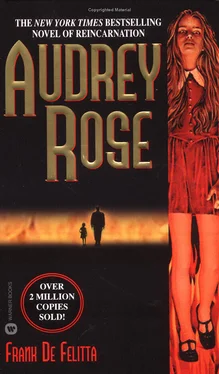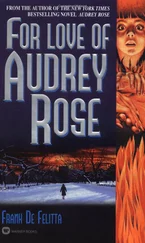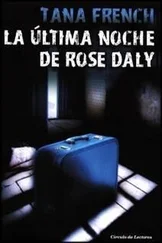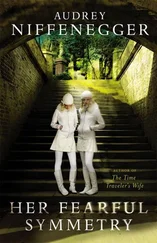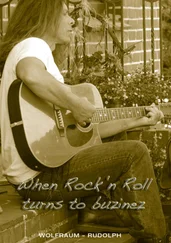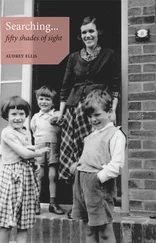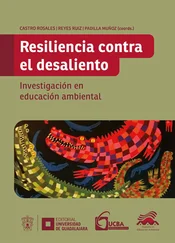What happened in the next minutes—the perfunctory, professional reaction to the beeper’s strident warning signals, drawing nurses and doctors from all parts of the room like a swarm of locusts around a crust of bread, and their concerted attempts to restore Hancock to life, their quick, definitive moves with hypodermics, oxygen equipment, and finally their very fists pounding on his chest as one would pound on a door, hoping to encourage the sleeper to awaken—was scarcely apprehended by Brice Mack. His gaze remained firmly fixed on Hancock’s face, on the eyes casually closed, the mouth that was smiling, the nostrils flared, the sense of peace, of perfected joy, suffusing the noble countenance.
“He’s dead,” somebody murmured, and gradually the group retreated, in stages, first the doctors, then the nurses, all but one nurse, who stayed behind to disconnect the tubes and wires, roll down the mattress, and gently pull the sheet over the still-strong and energetic face.
For a very long time Brice Mack remained rooted, gazing entranced at the draped quiescent form on the bed, till he became aware that tears were running down his face. Their wetness snapped him back to awareness of the life struggles going on all around him and sent him stumbling from the room in a daze. The nurse in the anteroom said something to him which he didn’t quite get but which sounded like an expression of sympathy as he plowed through the double doors and into the corridor leading to the exit doors.
It was a little after two o’clock when he left the hospital and began to walk eastward on Fifty-seventh Street, across the entire width of the island, until he came to the East River. The night was dark and freezing, and a sharp wind at his back propelled him forward on his aimless course.
At Sutton Terrace he leaned over the railing and gazed into the stirring waters. The rumbling of speeding traffic coursing up and down the East Side Drive made the pavement quiver beneath his feet.
For a time, his mind remained void of thought, caught in the hums and vibrations of the surrounding night, until the very quality of the sounds became blurred and distorted, taking on the gurgling sound of speech, of words, “Oh, my!,” the parting words of Hancock, “Oh, my!,” while in the middle of the dark, swirling waters, his eyes found the fragmented image of the dead man’s face, reflected in a thousand flickering lights.
Tears sprang to his eyes, and his throat clutched as he fought to subdue the deep sob of anguish which came to it.
What am I doing? he berated himself. Crying over a dead man I hardly knew. It makes no sense. Especially when you consider it’s what he wanted … what he’s looked forward to all his life.
“Bullshit!” He spit out the word into the wind gusts whipping off the river. “Bullshit!” he repeated, seeming to find comfort in its sound. Dead is dead! he told himself angrily. When the lights go out, they stay out, and those who believe different are crappin’ themselves, and that includes Hancock and Hoover and all the pathetic bastards who can’t stand to face the—how did the shrink put it?—“The finality of death.” He was right. Perez was right. We’re so scared shitless of death that we’re ready to buy anybody’s bullshit theory. And yet—And yet, an implacable voice within him cautioned, there was that look on Hancock’s face … that expression of pure ecstasy? Yeah, ecstasy, that was it. The old boy was really seeing something, and feeling something.
Swirling lights? Beckoning hands? Siren songs? The lush, inviting vulva of the astral womb? Or was it simply as Mel Stern, his doctor, once told him, that the body orgasms at death? Yeah, that would account for the look of ecstasy. Especially in a man of eighty-four.
Who knew? Who really knew anything? The only thing he knew for certain was that Hancock was dead, departed, gone, of no further use to himself or to Mack or the case or anything or anybody, ever again, and that save for the icing tears which were beginning to itch his cheeks, there would be few, if any, to cry for the old man and properly mourn his passing.
With considerable surprise, Brice Mack discovered he was standing on the corner of Fifty-ninth Street and Second Avenue. He had no memory of having left the railing over-looking the East River and walking the distance. What made him aware of it now was the lone cab cruising down the broad avenue which, devoid of traffic, seemed elegantly spacious. He frantically waved the cab down.
Entering from the bitter cold, he found the heat inside the cab oppressive and stifling. The extreme contrast of temperatures made his skin flow with rivulets of perspiration that even the removal of his coat and the loosening of his tie failed to stanch.
At Fourteenth Street he paid off the cab and walked the rest of the way to Foley Square in the solitude of his thoughts and in the company of Hancock’s face imprinted on his mind in that final instant of life, alert, vital, every inch the man he was and in that first instant of death, shocked, surprised, wondrous, his faculties at their fullest stretch, and the gurgling breath, “Oh, my!,” and then nothing.
The first person Brice Mack saw, upon making his weary entrance into the courtroom at eight forty, was Elliot Hoover, already seated at the defense table. There was a worn and haggard look on Hoover’s upraised face, and the bloodshot eyes staring vacantly off into space clearly told of an anxiety-ridden and sleepless night. Had he learned about Hancock’s death? If not, he must inform him at once and try to impress on him their weakened position and the need to bring on Marion Worthman and keep her on until Ahmanson came through with somebody else. This was no time to fret over taste and decorum and other such niceties, not now, and not in a court of law, especially when the charge was kidnapping in the first degree. He must make him realize that the waters in Part Seven were shark-infested and highly dangerous, even murderous.
The spectators’ section was fully occupied and the reporters had begun to file in as Brice Mack, wearing his most serious and worried face, walked up to Elliot Hoover. About to engage him in what he knew would be a one-sided, probably useless discussion, the lawyer’s attention was suddenly diverted by a noticeable lull, more a hush, in the otherwise noisy chamber, followed by an electric ripple of excitement. Glancing up to the center aisle, he saw Janice Templeton, her face pale, drawn, yet animated by a luminous intensity, striding purposefully down to the witness row well in advance of her husband, who seemed his typical, hung-over self. It was the quality of Janice Templeton’s bearing—the stick-straight, ramrod, resolute way in which she carried herself—that caught the lawyer’s interest and, apparently, the interest of the spectators and reporters as well, for the room was abuzz with whispers and aflutter with covert side glances.
Janice Templeton seemed a different woman this morning.
Something had happened.
With his eyes firmly fixed on Janice Templeton, Brice Mack failed to notice that Elliot Hoover had risen to his feet and was standing and facing the spectators’ section, facing the witness row and, particularly, facing Janice Templeton—not until he saw Janice Templeton, still a couple of steps from her seat, suddenly stop and turn and stare back at Elliot Hoover.
It was in this one stricken moment of frank and open exchange, in this deep and intimate silent communication between plaintiff and defendant, in the subtle passage of looks of affirmation, the bestowal and acceptance of each other’s trust and confidence—there for all the court to see, including her husband, whose expression of utter confusion had frozen on his face, and in light of the fearful, darting looks that were being exchanged at the DA’s table—that Brice Mack realized that whatever had happened to Janice Templeton was good for their case.
Читать дальше
